
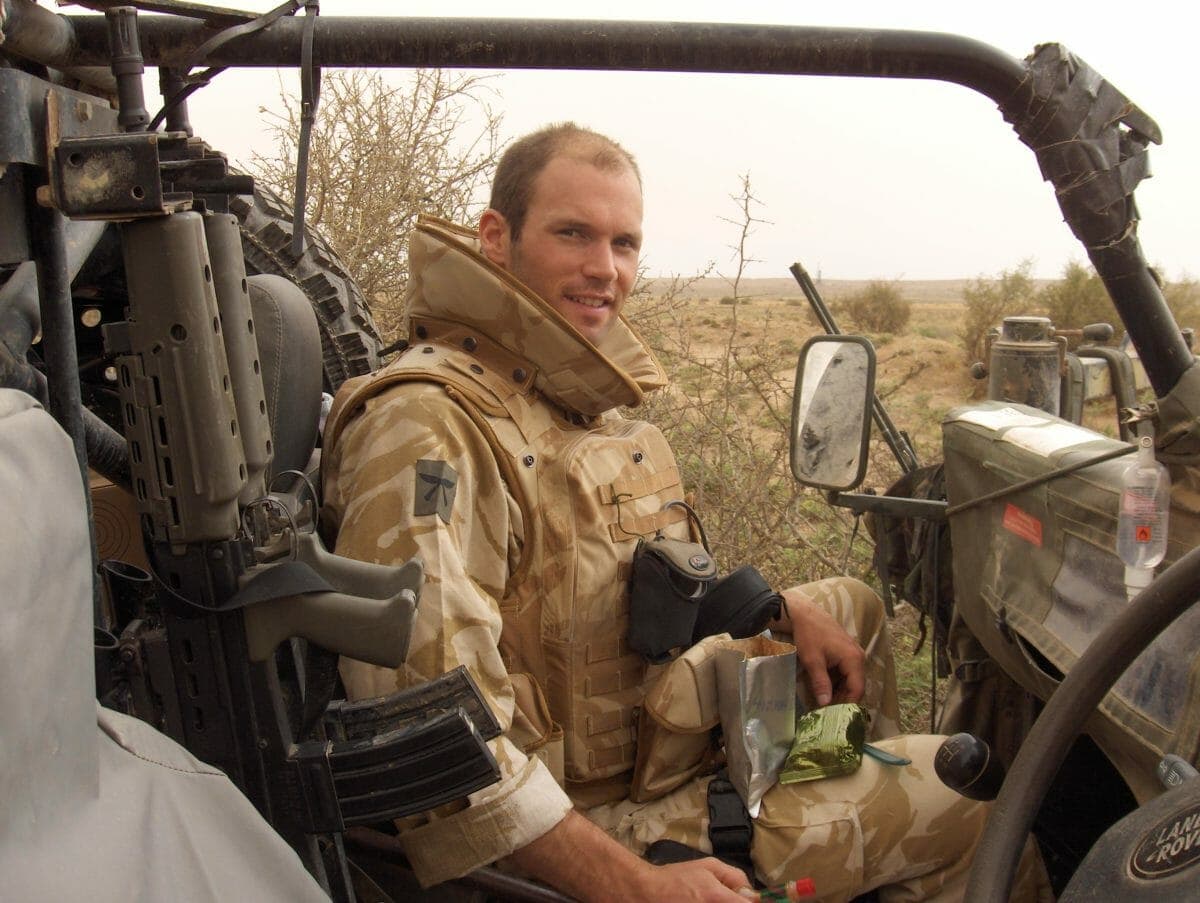
From Iraq to the Alps
Editor’s note:
Mark Brightwell is a guide for Run the Alps. He grew up in suburban Hampshire – England’s gently rolling South. He served from 2005 to 2011 with the Royal Gurkha Rifles and was injured during the Iraq war. Trail running has since become an important part of his life: a way of experiencing joy, processing pain and staying balanced.
Mark works for the non-profit, Climb2Recovery, helping other wounded, injured and sick veterans in their recovery via rock climbing and Alpinism. He was recently nominated for the Henry Worsley Award, the highest accolade of the Royal Society, intended for “the person who has best inspired others through the demonstration of determination in the face of adversity, whilst endeavoring to support others with their recovery through sport or adventure challenge.”
Here’s his story.
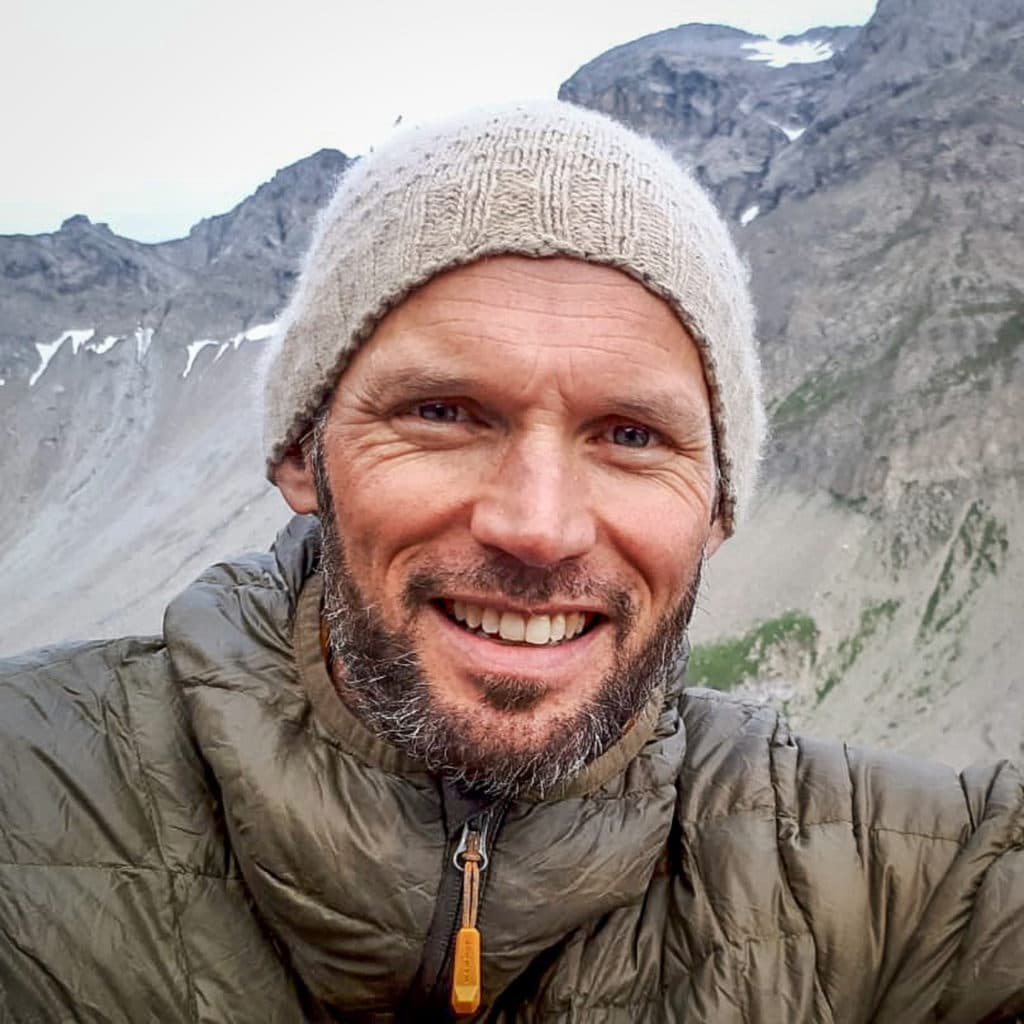
Run the Alps spoke with Mark about his time in Iraq, the day that changed the course of his life, and the role that trail running has played in his world since.
Run the Alps: Can you tell us about your accident?
Mark: I have to smile when people ask me about my accident. It wasn’t an accident. Someone made a very deliberate and nearly very effective attempt to kill me. That wasn’t an accident any more than me being in Iraq was an accident. I signed up to serve, as a soldier, knowing what might happen. I didn’t sign up for Iraq per se. I signed up as an idealistic and naïve youth who wanted to reach beyond the confines of his own narrow experience of life, develop an understanding of the wider world and in particular, the flip side of the coin, as I like to call it, to make a positive difference where I could. But, let’s not fall headfirst and screaming into the dark well of politics. We can save that for some other time.
I was in Iraq as commander of a long-range desert group, living off our open-topped, weapon-bristling Land Rovers, under the unbearable desert sun by day and the divine desert stars by night. We had a variety of mostly bullshit missions based on a smorgasbord of mostly bullshit intelligence (word used in loosest possible terms) but mostly we drove around the desert offering opportunistic targets for pissed off Iraqis and occasionally bumbling into mine fields.
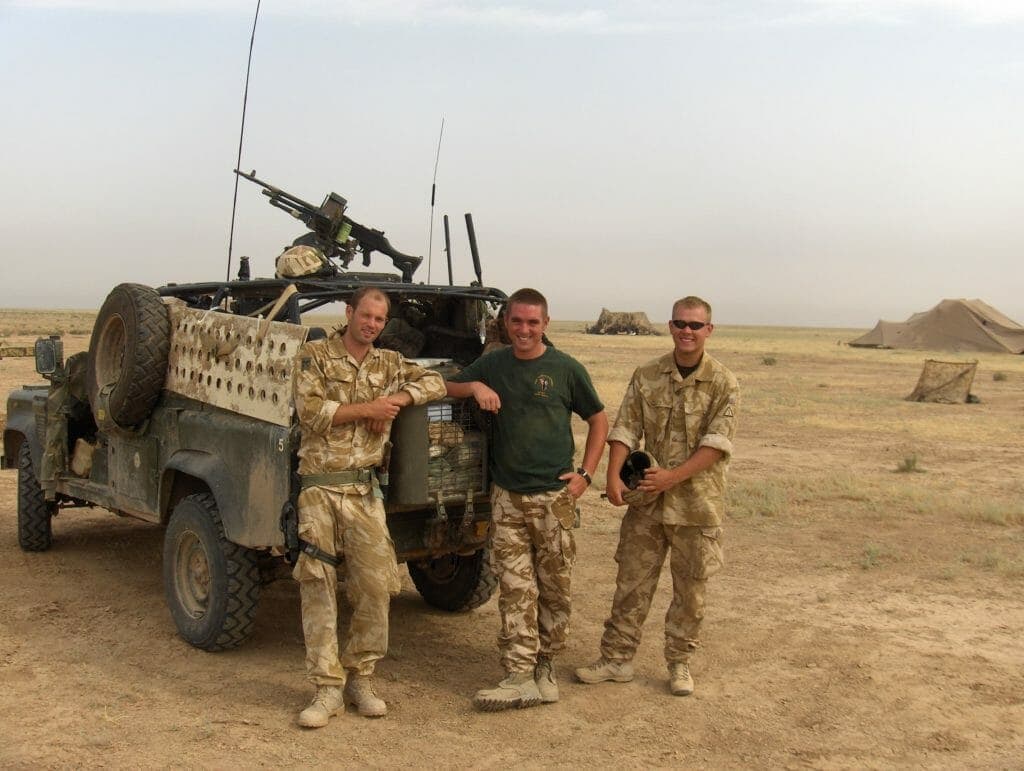
On the night of my injury we were up to our usual shenanigans, and the enemy likewise. The issue for us was that our activity was having little impact on the enemy, who moved like a shadow and were always a step ahead. The same could not be said the other way and the enemy could frequently attack using a tactic known as shoot and scoot – essentially, shooting and disappearing before we could shoot back. (For the sake of comedy I like to think that the ‘scoot’ involved mopeds though this probably wasn’t the case.)
To cut to the chase, a large rocket came without warning from a jet-black sky, exploded with a blinding white flash, convincing me beyond doubt that it was the last thing I would see. A colossal impact and a searing, burning pain suggested otherwise. I was still alive. But, Sweet Lord! Life had just become painful and scary all of a sudden.
I was hit through the hand and leg and had become as useless as a long-range desert group without a viable mission. I was evacuated the next day and spent the rest of the war ogling nurses through a haze of morphine.
Run the Alps: How long was this… transition?
Mark: I was initially in the hospital for somewhere between one and two weeks. (The “rest of the war” is playing a bit on a cliché. For one thing, what does that even mean? Wars don’t just neatly stop despite what our history books would have us believe).
After my time in the hospital, I was referred to a Regional Rehab Unit that I commuted to from home. I returned to hospital for further surgery and follow-ups.
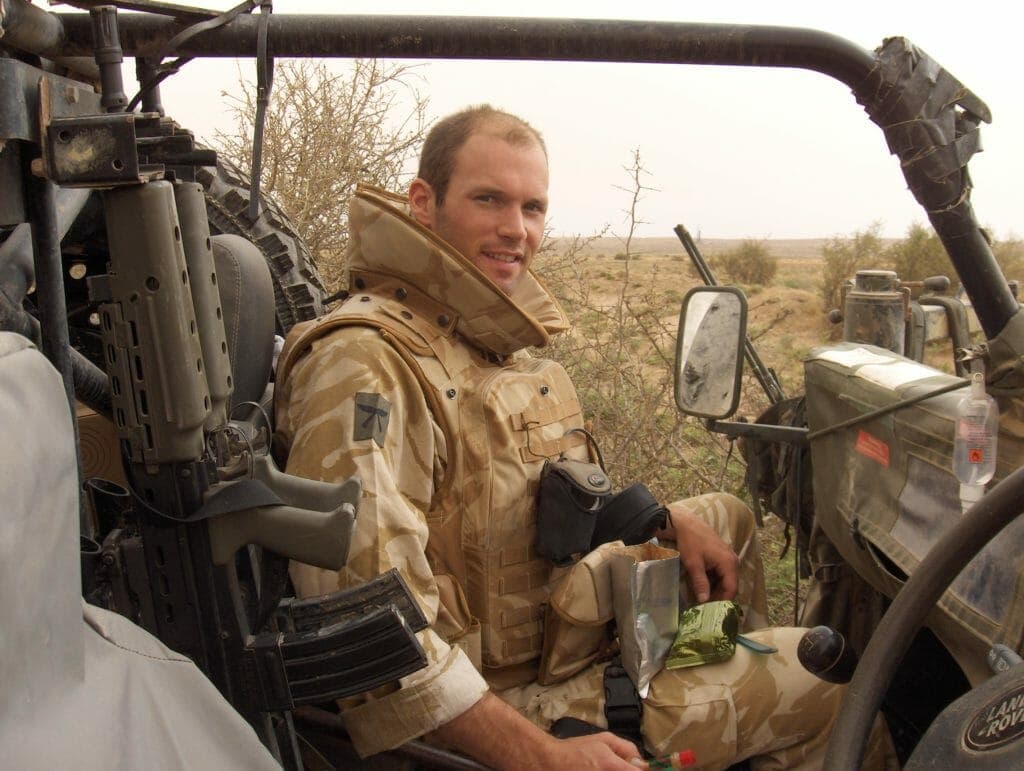
Run the Alps: Those changes of environment must have been bizarre!
Mark: Part of what messes people up is this speed of change. One week you are living in the field, engaging with life or death situations and part of a tight tribe where your comrades’ lives are your concern. The next you are in hospital in the UK. The next you are at home with your mum bringing you cups of tea. Excuse the crude terminology but this is an utter head-f*ck.
I guess this demonstrates just how tribal we are and how we depend so greatly on community in order to feel what I think of as the holy trinity: competent, significant, and loved. When you are in times of conflict, lives are on the line and people are scared, all of this just gets amplified. When you are torn from it by events totally outside your control and find yourself completely dislocated from your tribe, tough times are inevitable.
Run the Alps: How did your life change?
Mark: In the short term my life became distinctly less scary. I was well looked after and recovered well, at least from my physical wounds. I applied myself with rigor to my physical therapy regime, which was twenty minutes in every waking hour. Generally speaking, I was glad to be alive and not in Iraq.
In the longer term, it was the head game that proved the harder battle. Mainly, I suspect that was because nobody really paid it any attention, myself included– I now literally thought I was bombproof.
Flippancy aside, there were dark times and I was scared. But I didn’t have the language to express any of it and it never crossed my mind that anyone could help me.
I knew there was something wrong but I reckoned I could fix it myself by going back on Operations – getting back on the horse, so to speak. The scariest thing was that this particular horse – war – was more unpredictable than an unbroken mustang. But if I could get through another tour, I figured I’d feel like the old me again and could get on with moving positively forward in life.
That sort of worked … for a while.
But (who didn’t see the ‘but’ coming!) things did unravel, right when I thought I was doing really well at the civilian game. Flashbacks and night terrors are probably not commonplace among Environmental Tech Masters students. In spite of my gentle daily existence in academia, that is what I started experiencing.
Eventually things did get bad enough that I started learning and speaking the language of getting help. (Also, I’d seen enough friends either attempt or succeed in taking their own lives to know that I didn’t want to spiral any further downwards). This was a different kind of scary compared to incoming fire. I know which I prefer– incoming fire can be weirdly fun. I hated feeling vulnerable and I hated feeling that I’d come up against something that I wasn’t able to deal with by myself.
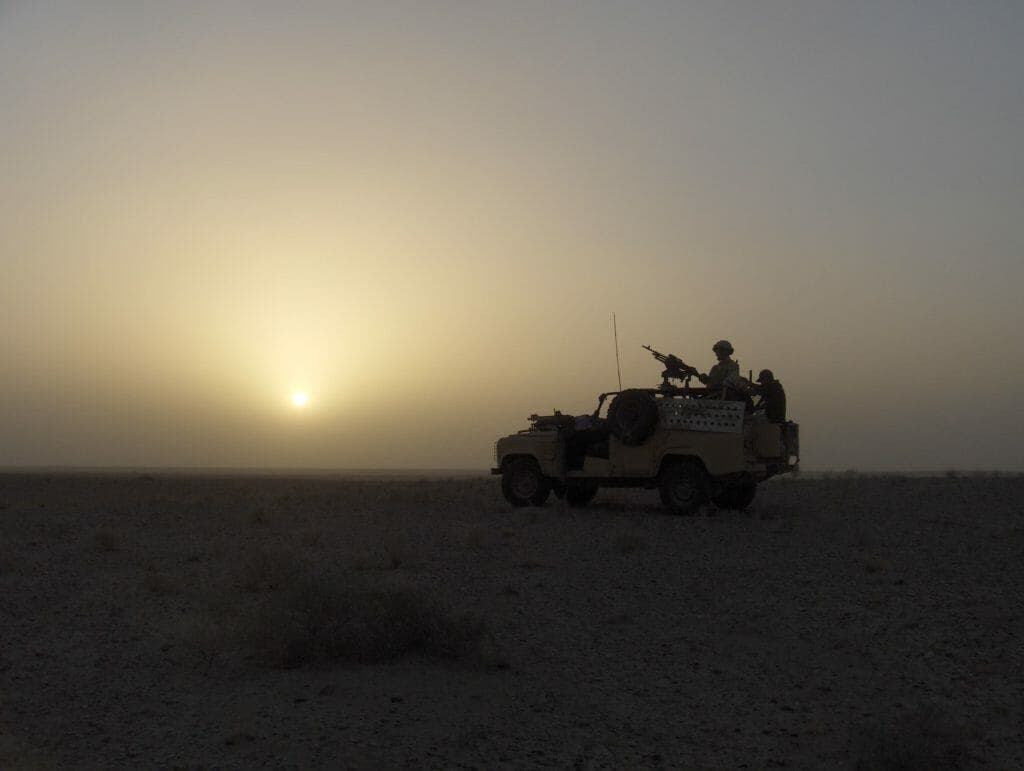
Anyway, as I say, I put my hand up and said, “I am not quite OK.”
I started, with help, to accept that there was an issue to address, a thing to learn about and manage. We are always disproportionately fearful of the unknown, and this was just that– an unknown.
This acceptance was a key turning point. It brought a sense of relief. I realized that I could apply myself diligently to the study of something– in broadest terms, mental health– and uncover its mysteries. I could learn mechanisms and tools that would enable me to, for want of a better term, effectively manage myself.
Running alongside this personal mental health journey, I was guiding and instructing in the mountains, often within the veteran community and in support of guys whose mental health battles made my own problems look like a bed of roses minus, of course, the thorns.
What was illuminating in this context was that through my own battles, I was becoming distinctly more effective at reaching others. I learned some extremely powerful lessons, such as, if you have the courage to show vulnerability, that expression of openness gives a very liberating license to even the toughest, most insular of people to open up.
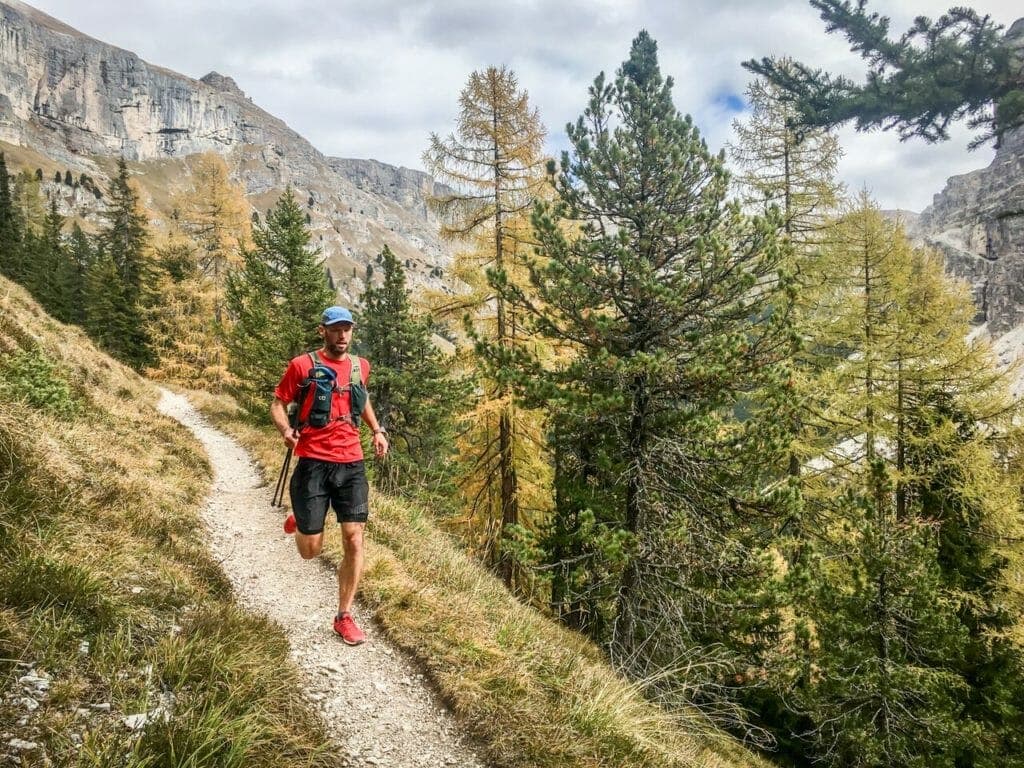
Run the Alps: So, your being vulnerable makes it easier for others to open up?
Mark: Absolutely. This has been my experience time and again. I firmly believe that if I solely portrayed an image of what we traditionally think of as strength, it would make me unapproachable. Who wants to share something with someone when we feel that they won’t understand? It’s a very different picture when you show that you are strong and vulnerable, that it’s not binary.
It’s one of the best outcomes of my Iraq trauma.
Run the Alps: What role has trail running played in your recovery?
Mark: Well, as the great Richard Bull, founder of Trail Running Nepal, once said to me (while coercing me into longer and longer races):
“Running is balm for the soul.”
Well, when your soul has been pummeled by the relentless fists of trauma, it needs all the balm it can get.
It was 2015 and I was in Nepal working in the post-earthquake environment. There were days when I was walking from one destroyed village to the next, quite literally walking through the ruins of people’s lives. My trauma cup was filling up in two discernible ways. First, sympathetically and secondly, via triggers. For example, the ground continued to shake with aftershocks, which were uncannily similar to the deep vibrations of exploding bombs.
Part of what allowed me to keep working was running. I thought of it as my sanity valve. I guess it’s the importance of that feeling that many runners will know of as just running without thought, realizing that for the past, however-long, your mind has been everywhere and nowhere, totally present yet also a million miles away. This, for me, yields the kind of reset that allows me to keep going afresh. In short, it keeps my head and body calm and in balance.
Run the Alps: War and trail running could not be more different in many ways, but you’ve also said you find parallels there. Can you explain what you mean?
Mark: In terms of trail running, it definitely brings with it some really important elements of tribe and community. When we are out in the mountains together, traveling light and fast, we face personal struggle and objective risk. We have to support each other and look out for each other in order to have the best experience. So you can see clear parallels, I think, between a platoon commander in Iraq and a Run the Alps guide, far-fetched as that might sound.
We all do well when there’s an element of struggle. We might also call it challenge. For some of us, it’s not enough to simply deal with our own challenges. We want to enable others with theirs. We put them before us and serve them. This is the servant-leader model. (‘Serve to Lead’ is the motto of the British Army’s Officer Training School.) It’s hard to consistently implement. Gandhi probably did it better than most.
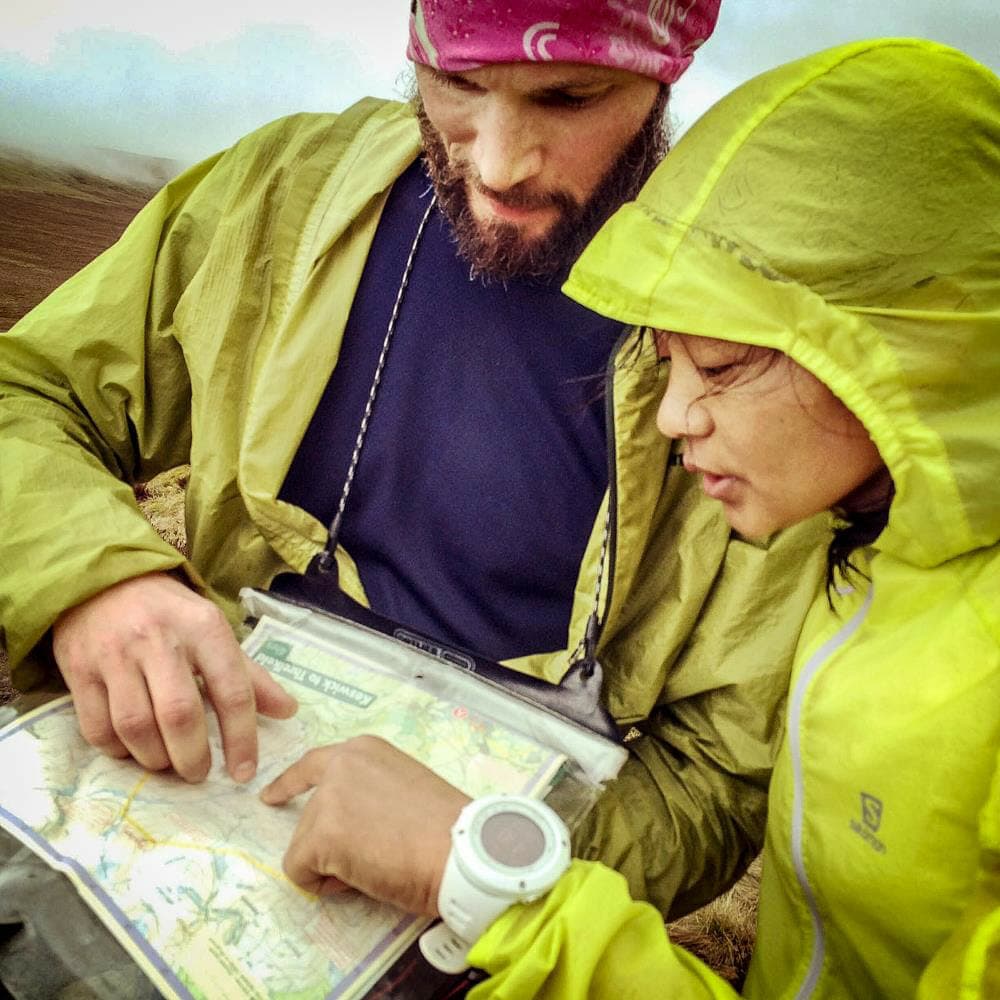
Run the Alps: What lessons or understandings do you bring with you from this experience?
Mark: First, acceptance: Acceptance is a route to truth. Without acceptance there can be no truth. And without truth there can be no peace. Until you accept that you have a problem you cannot expect to solve it. Duh!
Second, vulnerability: Being vulnerable is super hard, especially for men and especially men who have been immersed in macho cultures based around false dichotomies like strength and weakness, where strength is silence and weakness is communication. If you can learn to be vulnerable your power to reach people grows, as do the pathways for other people to reach you, and maybe to help you, too.
Third, unconditional positive regard: Everyone has their own shit going on. For the most part they don’t wear it on their sleeves. Sometimes, it’s written on their face, but you’ll only read it if you really pay attention. In any case, there’s something there in all of us. In others words, if not constantly, then at least some of the time, we all deal with shit.
So, learn to see people with unconditional positive regard because for the most part you have no idea what their shit is or what beast is gnawing at them, making them act in a way which makes us prone to simply think: “Jerk.” They’re probably not a jerk. They’re probably just grappling with something. We’re all jerks sometimes, right? And we wouldn’t want to be judged for all time on the basis of those moments. Practising unconditional positive regard can help us swerve this pitfall of intuitive negative judgment.
That’s enough from me.
I hope there’s something in there that’s helpful and thought provoking. I could write a book on the question of how my life has changed. But, that’s enough for now.
Mark’s story will be part of an upcoming documentary, Post Traumatic Growth. The project is now being funded at Indiegogo. We hope you’ll consider supporting it.